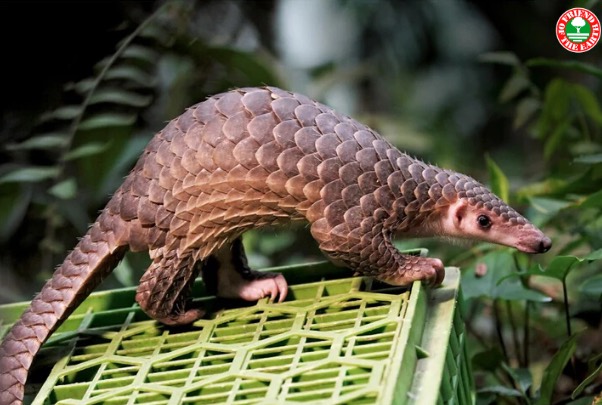|
Friend of the Earth, the preeminent worldwide certification for agriculture and land-based ecosystems, has initiated an online petition requesting that the governments of China and Vietnam enforce a ban on the trade in pangolin parts. The scale-covered mammal has been hunted nearly to the point of extinction to feed a lucrative marketing trafficking in pangolin parts for use in traditional Chinese medicine. Pangolin are also considered a delicacy in China and Vietnam, the two countries that bear the most responsibility for the illegal global trade in pangolin scales and meat.
“This harmless, ant-eating mammal is now endangered due to the black market,” said Paolo Bray, Director of Friend of Earth “Unfortunately, international legislation is not sufficient to protect the species because the laws have not been enforced. This is, in part, due to a lack of political will and a lack of funds. Local populations are also not aware or engaged in the drive to conserve these unique animals. Our hope is that the petition will demonstrate a worldwide interest in saving the pangolin, which will drive action on the parts of the Chinese and Vietnamese governments.”
How to enforce Pangolin trade ban
The Pangolin is believed to be the world’s most trafficked mammal. Poachers in Africa are paid about $2 for each pangolin they catch. At the buying end of the market, in China and Vietnam, a kilo of pangolin scales can sell for more than $750, according to Pangolin Reports. The scales are falsely marketed as having medicinal properties that can cure a variety of ailments.
The monetary incentive has led to innumerable pangolins being taken from the wild. The IUCN SSC Specialist Pangolin Group estimates that, despite the reduction in numbers over the past decades, a pangolin is illegally taken from the wild every five minutes. Habitat loss is also affecting pangolin populations in both Asia and Africa. The primary cause is deforestation.
Pangolin almost-extinct scale-covered mammal
Of the eight species of pangolin, four (Phataginus tetradactyla, P. tricuspis, Smutsia gigantea, and S. temminckii) are listed as vulnerable, two (Manis crassicaudata and M. culionensis) are listed as endangered, and two (M. pentadactyla and M. javanica) are listed as critically endangered on the International Union for Conservation of Nature Red List of Threatened Species.
Pangolins have a highly specialized diet, relying on ants and termites for their nutrition. Though they are not closely related to anteaters, pangolins occupy a similar ecological niche to these animals. They are important for controlling insect populations. According to research, a single pangolin can eat upwards of 70 million insects a year. As such, pangolins have an important role in the control of forest termites and without them, the balance of their delicate ecosystems will tip.
Friend of the Earth will send all signatures from the petition to the relevant decision-makers in the Chinese and Vietnamese governments and companies. The organization will subsequently ask for feedback and updates on the undertaken measures.
About Friend of the Earth
Friend of the Earth promotes sustainable agriculture and farming methods through companies’ certification and consumer awareness. It is a project of the World Sustainability Organization, whose objective is the conservation of ecosystems.
For more information about Conservation Projects visit
https://friendoftheearth.org/conservation-project/save-the-pangolins/
For moreinformation about the Petition visit
http://chng.it/bPLLgW8G2G
|
